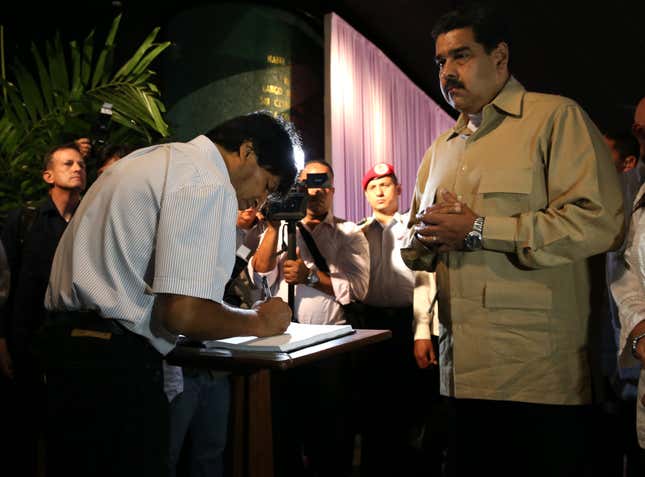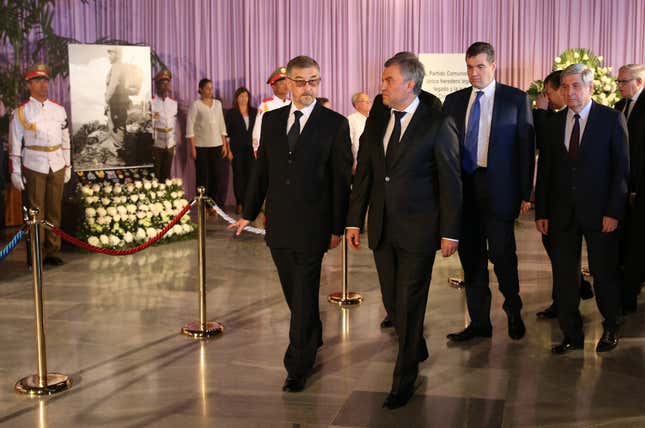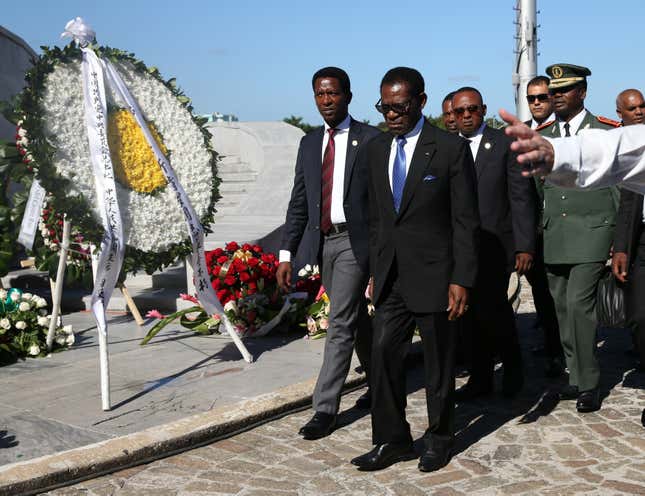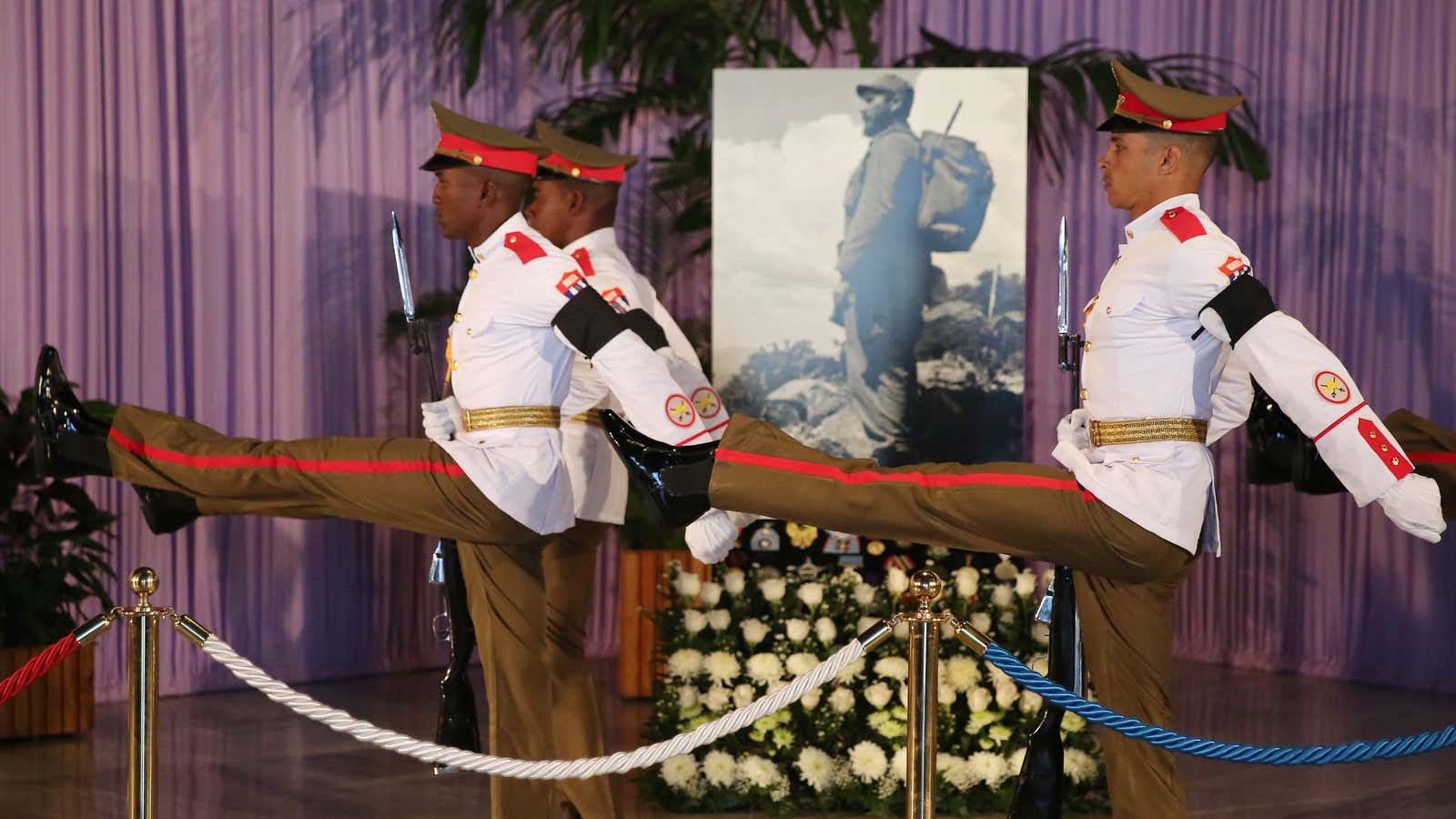“Tell me with whom you associate, and I will tell you who you are,” goes a Spanish proverb.
The answer for Fidel Castro, who died on Nov. 25 at 90 years old, is pretty clear based on the procession of international leaders who have so far stopped to pay their respect to the former president in Havana. With the exception of Bolivia’s Evo Morales, all are representative of authoritarian regimes.
The comandante’s formal memorial was set to be held the evening of Nov. 29 in Havana’s Revolution Square. But hours before the major event, some stopped at a tribute set for Fidel at the towering José Martí monument to bid a more personal and private goodbye.
Venezuela’s troubled president Nicolás Maduro, who has used an array of undemocratic tactics to avoid recall, bowed his head before a picture of Fidel in his fatigues. He and Morales, a fellow, but much less controversial, leftist, signed Castro’s book of condolences.

Russia’s Vladimir Putin wasn’t able to make it, but sent the speaker of the country’s parliament, Vyacheslav Volodin, in his place. A powerful Kremlin supporter, Volodin has helped squash anti-Putin protests and cement Putin’s power. On Tuesday, he laid a wreath of flowers for Russia’s long-time ally in Havana.

Also among the mourners was Equatorial Guinea’s president Teodoro Obiang Nguema Mbasogo, holder of one of Africa’s worst human right records. He’s been power since 1979, making him the continent’s longest serving dictator. His son, Teodorin Obiang Nguema, whom he appointed vice president, is under investigation for alleged money laundering by Swiss authorities. They recently seized 11 of the world’s rarest and most expensive cars from him.

China’s vice president Li Yuanchao also paid a visit to the Martí memorial and signed Fidel’s book, reported Cuba’s Radio Rebelde (Spanish).
A more politically-diverse cast of guests was slated to go to the memorial itself, including Mexico’s and Colombia’s presidents Enrique Peña Nieto and Juan Manuel Santos. King Juan Carlos was going to represent Spain. More questionable attendees included Zimbabwe’s Robert Mugabe and a delegation from North Korea.
In the end, the absences were more notable than the confirmations. The heads of state of the world’s most powerful democracies, including the US, France, and the UK, said they were sending lower-ranking envoys.
